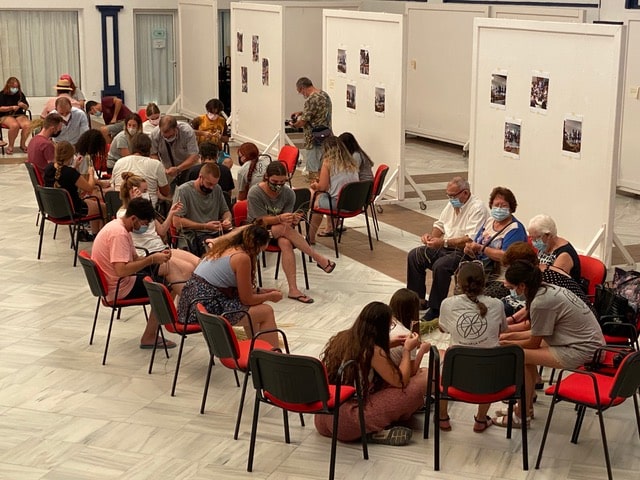As part of the Mojácar Local Council-organised cultural activities related to the “Mojácar La Vieja” excavation campaign, the first meeting of the Esparto Grass Workshop took place in the locality’s Multi-Uses Centre was, which as for the last occasion in 2019, was greatly looked forward to.
Due to the high demand from students and the nice experience of the last workshop, Mojácar Council managed to bring together seven master esparto weavers from the local area to demonstrate and to teach this trade, now almost forgotten, to people with an interest in it.
The fact of having been able to gather in one place so many master esparto weavers, an activity which is hardly practiced anymore and the secrets of which remain only in the hands of our elderly, made it a unique treat.
María Carrillo, Bartolomé Flores, José Gallardo, Martín Flores Sardaña, Ramón Porreras, Juan Zamora and Paco Santiago were the master esparto weavers who shared their good work with a large group keen to take up the baton of this ancient activity.
Children, teenagers and adults of all ages closely followed the instructions in an afternoon packed with learning on how to work with esparto, but also, and again thanks to the elderly people, about the ways of life of not so very long ago, in which esparto weaving was one of the daily activities. Nor was it so long ago that it was one of the most important local industries in the region and in many Spanish towns.
The masters brought to the class the tools with which they worked the esparto, as well as some of the everyday items, such as baskets and espadrilles, and those used for working on the land: implements for horses, baskets for storing food or to transport small animals, etc.
Its connection to the Mojácar excavations is related to the work methodology of the University of Granada’s MemoLab bio-cultural archaeology laboratory.
MemoLab works in the area of investigation and dissemination within medieval archaeology, but providing a social perspective: combining archaeology and the environment. Specifically, the recognition of historical processes involving natural resources and on the strategies for exploiting them which have given rise to different landscapes and forms of cultural expression.
Knowledge of this heritage allows for increasing and passing on knowledge about it to the benefit of today’s society and the sustainability of rural areas.
This Esparto Weaving Workshop will continue next Tuesday 7th September at 6pm in the locality’s Multi-Uses Centre.
There is also another workshop planned, Ceramic Washing, which will be on Friday 3rd and Wednesday 8th, also at 6pm, in the Mojácar Multi-Uses Centre.





